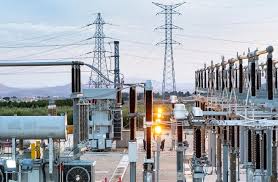
Arresting Nigeria’s Incessant Grid Collapses
By Zeenat Sambo
The incessant collapse of the national grid in Africa’s Giant, Nigeria, is more than worrisome. Nigeria, as a country, is enormously endowed with diverse natural resources that can be utilised for generating energy.
But the billion dollar question begging for an answer is why does its national grid recurrently break down? Is it a case of gross ineptitude on the part of our leaders, the power generating and transmitting companies, and also stakeholders in the country’s power sector?
According to data obtained from the Transmission Company of Nigeria (TCN), the national grid has collapsed 108 times since the power sector was privatised in November 2013.
Also Read: IoTs and Combating Nigeria’s Security Challenges, by Zeenat Sambo
In the last 12 years, Nigeria has experienced 146 total national grid collapses and 73 partial collapses, regularly resulting in widespread blackouts.
This year, the first incidence of power collapse occurred on January 17, 2022.
Secondly, on the 4th of March, Nigeria experienced another grid collapse which led to another blackout across the country. Just within the recovery period of the second collapse another fall happened on 15th March making it the third grid collapse in the year.
When Nigerians had thought it was the end to total black out, another grid collapse bridged the hope on 8th April along the transmission line at Ikot Ekpene, Akwa Ibom State. It was reported that the quantum of electricity on the grid crashed from over 3,000MW to as low as 10MW around 21.00 hours the same day.
Similarly, the fifth, sixth and seventh time the grid would collapse this year, have all been witnessed.
These disruptions to power supply, absolutely, take a heavy toll on industries and small scale businesses. But as a solution to the menace, the federal government should consider decentralising the grid, which is not a new idea.
Prof Barth Nnaji, a former Minister of Power, had mooted the idea as far back as November 2019. Nnaji, in a lecture titled “Let there be light: Solving Nigeria’s Electricity Puzzle for Sustainability” at the Second Distinguished Guest Lecture of Dominican University, Ibadan, recommended decentralisation of the grid as a way out of its frequent breakdowns in order to improve electricity supply in the country.
According to Nnaji, the chairman of Geometric Power Limited, the national grid should be made into smaller chops for regional supply of electricity with each being “autonomous for better control and invested in by different groups and not one national grid, although there will still be national control that aggregates power and gets power supply from one end of the country to another.
With this, each grid will be able to control itself and there will not be system collapse as we always have it now,” he said.
Also, the House of Representatives at its plenary on March 1 passed a bill to allow states to generate, transmit and distribute electricity in areas covered by the national grid, and for related matters. The bill was voted for 298 to 2.
It is gladdening that the idea of decentralising the national grid is gaining currency in the country. The entire country does not have to be grounded when the grid collapses, with all the attendant consequences for both the economy and human comfort. Power, as we know, is pivotal to nearly all we do, especially in these modern times.
Nevertheless, decentralisation of the grid is only one of the options we have to attain a stable power supply. There are, indeed, other areas of energy that we can explore to achieve this objective.
Recently, the Minister of State for Power, Mr Goddy Jedy-Agba, hinted that the Federal Government was also ramping up solar energy supply to serve as backup during national grid collapses. The minister who spoke at a Rural Electrification Agency (REA) Stakeholders’ Workshop in Abuja urged industry stakeholders to come up with innovative ideas to deal with the power conundrum.
It is imperative that Nigeria should also explore other sources of power supply like wind power, especially in the farms.
Importantly, Nigeria should begin to tinker with the idea of institutionalising what is called Energy Democracy. Electricity should not be in the exclusive list, to be honest.
Let those who can provide power, be it states, corporate bodies or individuals, be allowed to produce power and sell to consumers. Overdependence on one omnibus, centralised power behemoth has failed. Improving access to reliable power supply is the key to reducing poverty. And also, unlocking economic growth in the country.
